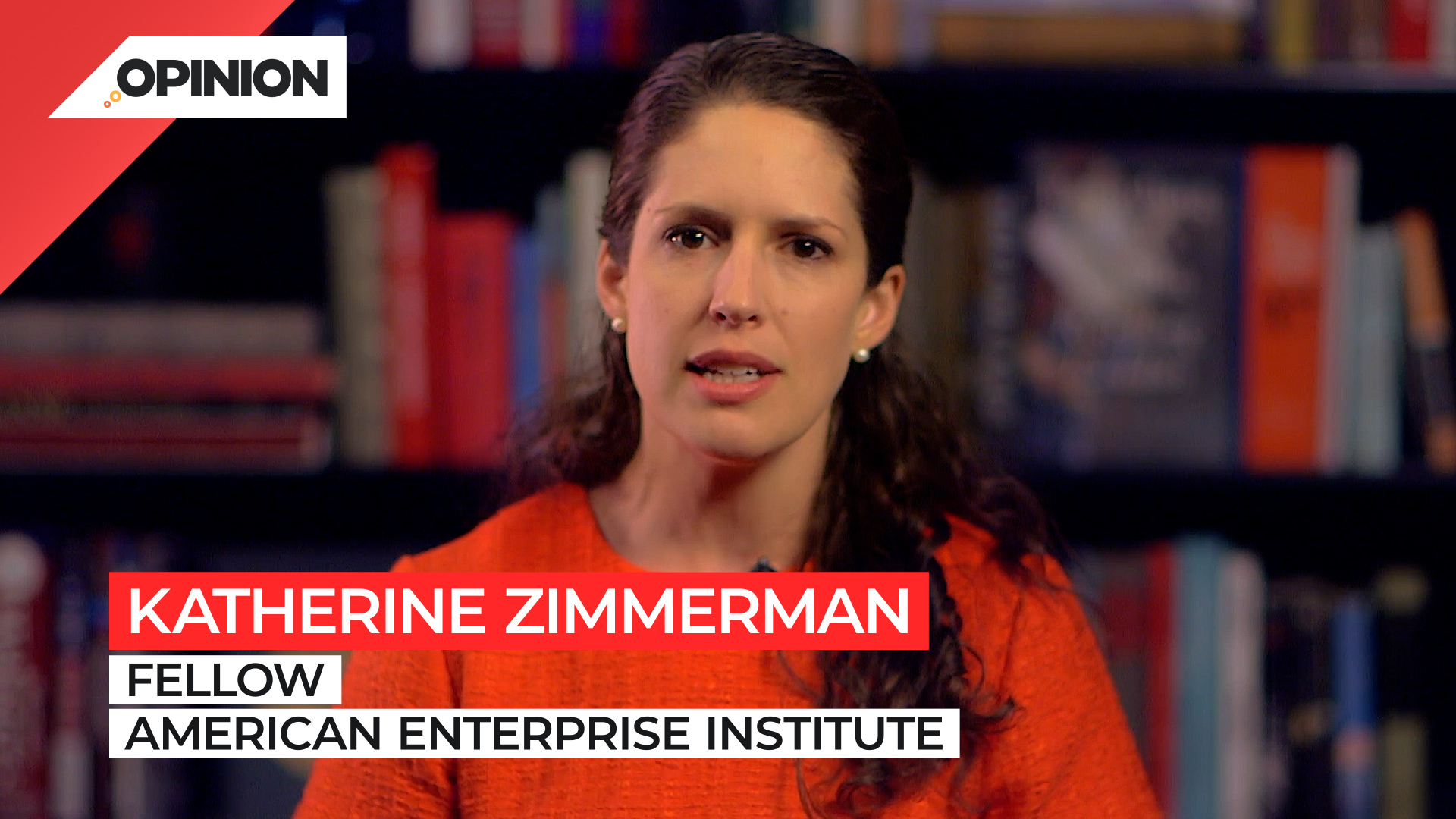
Commentary
-
Our commentary partners will help you reach your own conclusions on complex topics.
Horrific scenes from Ukraine splash across our screens. Russian forces have shown not just disregard for collateral casualties, but deliberate targeting of civilians. Evidence of torture and mass graves mounts against the Russian forces that invaded Ukraine on February 24.
They are not isolated acts. We must hold Vladimir Putin and his cronies accountable for these war crimes—what President Biden has called a genocide against the people of Ukraine.
But we must also not forget about the victims of other atrocities across the rest of the world.
The Chinese government is engaged in ongoing genocide and crimes against humanity targeting Uyghur Muslims and other minorities in Xinjiang province. Beginning in 2014, the Chinese government began interning an estimated one-million Uyghur and other Muslim, Chinese citizens in so-called re-education camps where they face forced labor, mass sterilization, and mandated abortion.
A genocide also occurred in Myanmar, which the United States formally recognized in March 2022, declaring the Burmese military’s actions against the Rohingya minority a genocide. The Rohingya people, a mostly Muslim ethnic group, have faced persecution for several decades in the majority Buddhist country.
Violence against the Rohingya recently spiked between 2016 and 2017, when the Burmese military destroyed hundreds of Rohingya villages and forced an estimated 800,000 people to flee to refugee camps in Bangladesh. The government has held over 100,000 people in internment camps since 2017.
Ethiopian Prime Minister Abiy Ahmed won the Nobel Peace Prize in 2019 for ending a twenty-year conflict with neighboring Eritrea.
Yet during Ethiopia’s recent civil war, fought in the Tigray region in northern Ethiopia and bordering Eritrea, gross human rights violations have occurred, perpetrated by all parties to the conflict. Yet the violence against civilians—Tigrayans, who are a minority ethnic group in Ethiopia that once held power—has amounted to what
Secretary Blinken referred to in March 2021 as “ethnic cleansing.” Tigrayans have faced forced expulsion from their homes, rape, extrajudicial killings and have been cut off from access to food aid, medical supplies, and fuel. Ethiopian soldiers have murdered humanitarians working in the conflict zone.
In Syria, the Assad regime has used chemical weapons, specifically chlorine gas, against civilians in addition to indiscriminate aerial bombardments on civilian locations during the civil war.
The regime has also detained thousands and routinely tortured prisoners. Many Syrian prisoners never faced charges and have been executed or tortured to death—satellite images confirm reports of mass graves. An estimated 192 journalists and aid workers have been targeted in Syria including American journalist Austin Tice in 2012, whose whereabouts remain unknown.
The Russian state-sponsored private military contractor known as the Wagner group has worked in certain African countries to assist autocratic governments in cracking down on opposition groups and supporting counterterrorism operations. In the Central African Republic, the group has been accused of executing civilians, attacking UN peacekeepers, and targeting Muslim communities.
In Libya, the UN Human Rights Council found evidence that the Wagner group conducted mass executions and tortured civilians.
In Mali, Wagner Group and Malian army soldiers are believed to have summarily executed 300 civilian men in the town of Moura on suspicion of being Islamist fighters.
These are only a handful of examples across the world. Holding perpetrators accountable, especially the heads of states, is difficult. Few, if any, will be tried and convicted at the International Criminal Court.
The United States has used sanctions as a key tool through Global Magnitsky and other designations like the 2019 Caesar Act, named for a Syrian military photographer who defected and testified before Congress to the atrocities committed within Assad regime prisons. It has sanctioned Chinese biotech and surveillance companies and banned imports from Chinese companies allegedly using forced labor.
It has also sanctioned Burmese, Ethiopian, Iranian, Syrian, and Russian actors engaged in human rights abuses connected to these conflicts. Additionally, the United States has assisted with funding to investigate crimes.
Diplomatic stunts, such as the Biden administration’s boycott of the Beijing Olympic Games, seek to generate pressure on regimes for change.
US officials also use their public platform to call attention to human rights abuses worldwide, and the US government publishes a report on human rights practices in each country annually.
As we are outraged by what Russian forces have perpetrated in Ukraine and move to hold them accountable, we must also ensure that we do not forget the other victims of such abuses elsewhere.
The images of these conflicts fade from memory and slip from our consciousness. New snapshots of violence replace the old, and the world moves on. The role of human rights in America’s foreign policy is unique.
The United States must continue to seek justice for all victims of human rights atrocities worldwide.
-
US should help Yemen fight Houthis
Recent Houthi attacks on U.S. Navy vessels and U.S. counter-strikes against Houthi targets in Yemen have triggered a foreign policy debate on how the United States should proceed and on whether a larger U.S.-Houthi conflict might be imminent. Houthi leaders say that their aim is to impede Israeli trade and shipping, even though many of… -
US must respond to threat from Iran-backed Houthis
Last month, the commander of Iran’s Islamic Revolutionary Guards Corps Quds Force told the head of Hamas’ military wing that Iran will do “whatever it takes” to support them in its war with Israel. Meanwhile, the Iranian-backed Houthi rebels in Yemen intensified attacks on commercial ships in the Red Sea, prompting U.S. warships to shoot… -
US, Israeli counterterrorism policy must adjust after Hamas attack
Revered Israeli and U.S. intelligence agencies failed to detect the signs of an imminent Hamas attack on Israeli villages near the Gaza Strip. The surprise attack was planned within Hamas’s military wing and highlights both Israel’s intelligence blind spots as well as Hamas’s use of “old-school techniques” like in-person communication. Straight Arrow News contributor Katherine… -
US must sustain pressure against al-Qaeda
The United States and its allies have severely reduced the capacity for al-Qaeda, the terrorist group behind the 9/11 attacks, to organize or carry out any large-scale terrorist attacks against the U.S. homeland. Recent U.S. intelligence assessments suggest al-Qaeda is weaker than ever in Afghanistan, while experts and international observers continue to warn that al-Qaeda is… -
African coups demand US policy changes
A string of recent military coups toppling governments in the African Sahel, from Guinea to Sudan, poses new risks and challenges to the United States. France, formerly a key ally in African security affairs, has also massively reduced its forces on the continent, at times being chased out by pro-Moscow forces. Straight Arrow News contributor…
Latest Opinions
-
 Getty Images
Getty Images
Hunter Schafer’s passport identifies her as male following executive order
-
 Reuters
Reuters
Diddy’s defense attorney abruptly requests withdrawal from case
-
 Getty Images
Getty Images
Trump fires Air Force Gen. CQ Brown as chairman of Joint Chiefs of Staff
-
 Getty Images
Getty Images
Trump restricts Chinese investment in American ‘critical strategic assets’
-
 Getty Images
Getty Images
MLB Spring Training: Can the Yanks hold off the O’s, Sox and Jays once again?
Popular Opinions
-
In addition to the facts, we believe it’s vital to hear perspectives from all sides of the political spectrum.






